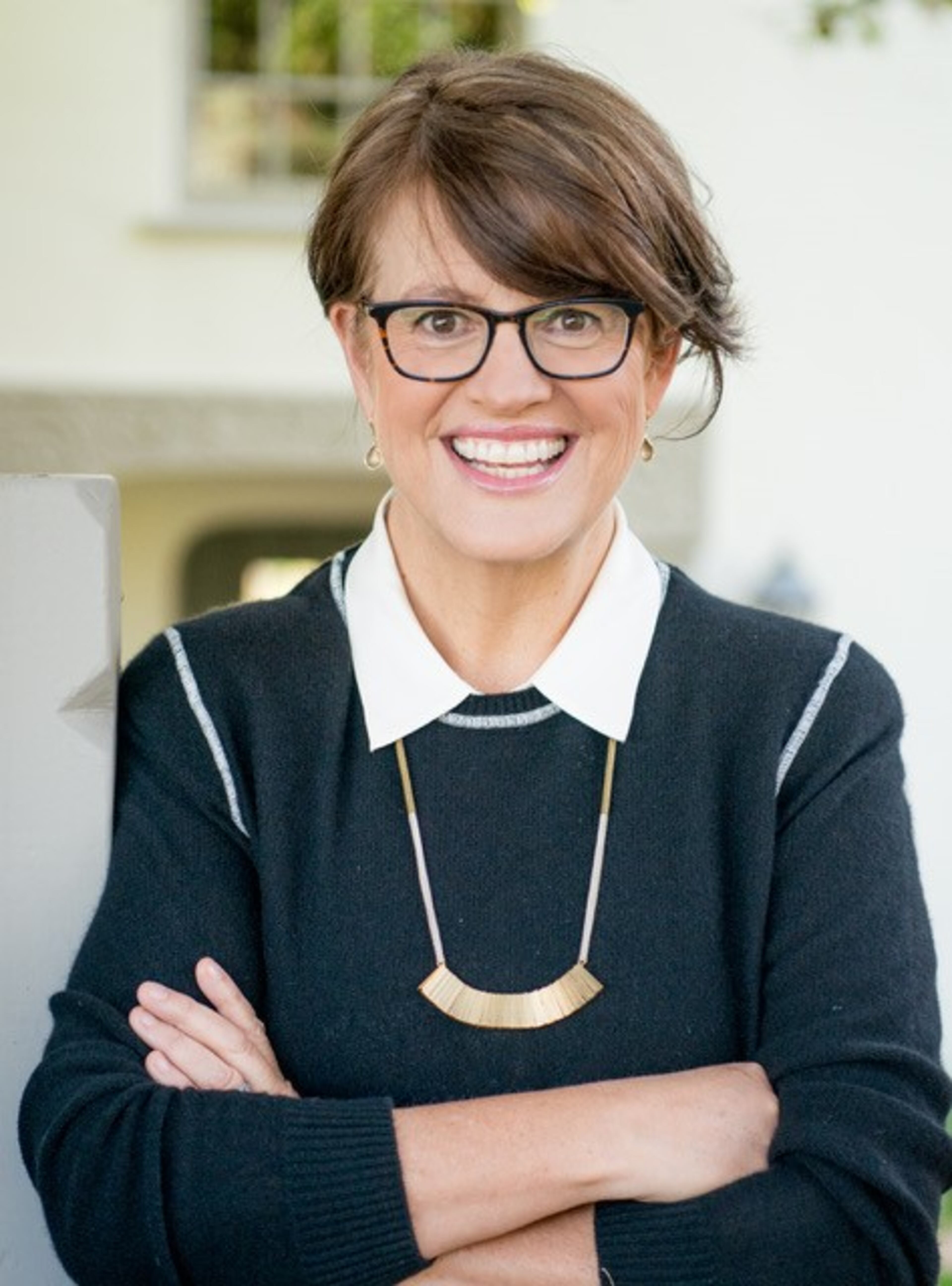Advice to graduates: Just ask questions
Writer Kelly Corrigan is a bestselling memoirist. Her memoirs include “The Middle Place,” and her first children’s book, “Hello World,” just came out. She is also the host of the podcast Kelly Corrigan Wonders.
Later this month, Corrigan will be coming to Atlanta from California to give the commencement speech at the Walker School in Marietta. In a guest column, she shares her main message to students — choose curiosity over judgment.
By Kelly Corrigan
Graduations, diminished though they may be, are upon us, and in an act of hope, I have reserved a flight to give the commencement address at a very nice high school back east.
This won’t be the first time I’ve stood in front of the capped and gowned but nonetheless, it’s daunting business: What can I tell a carefully spaced field of students that might actually be useful, something upbeat but also true? In earlier commencement seasons, I have emphasized adventures. I love going places, figuratively and literally. Slipping into the buzzy chaos of Manhattan or losing myself entirely in the magnificent landscapes of Montana? These are experiences not to be forgotten or dismissed.

But besides the obvious problem — no one has gone anywhere for a year now and it’s not clear when we might again — I’ve begun to wonder if that’s really the most promising direction a graduate can point herself. The long year at home has me thinking that life’s great gifts aren’t so much the places you will go but the people you will know. It’s both my experience and the conclusion of much research that the most powerful driver of human happiness is meaningful connection to others.
Now, I’m not all about happiness as a goal in and of itself but as a driver of productivity, health and contribution? You bet. The fact is happy people do more. They live more. They give more. Happiness helps make possible the things that make lives — and societies — thrive.
So how will we know them, these people who are places unto themselves? I say it’s ours for the asking, literally. Here’s the technique: ask questions, listen, ask follow-up questions. This works as well for the passing joy of talking to a stranger as it does for knowing the people you live and work with much better.
I have yet to meet an Uber driver who didn’t take me somewhere interesting. Did you grow up around here? What do you think of the news these days? What’s that dangling from your rearview mirror? As for my inner circle, though they may put up a little resistance, it turns out they’re no different from the Uber drivers. They want to be understood, appreciated, known. So I ask: If you could change one thing about your family, what would it be? Who do you miss right now? What are you trying to get good at these days? Someone always coughs up something that we can build a conversation around and conversations are the building blocks of connection.
There are reasons we don’t ask questions more. Out in the world, suited up in our cool guy armor, we learn to play hard to get and sometimes forget to drop the act after the proms and formals are long behind us. It can feel dorky to be really interested in someone. As adults, we get caught up in our busy-ness. Asking questions and tuning in to the answers to find a next question takes time. And maybe we lose the youthful hope of discovery. We stop believing that the person in front of us — the kid down the street, a colleague you’ve worked with for years, the nurse taking care of your mother — has things to tell us. Maybe, as I recently uncovered, the kid is studying to be a black belt, the nurse immigrated from Ireland to Arkansas and the colleague gave one of her kidneys to her sister.
Asking questions says: Listening to you is preferable to listening (some more) to myself say things I already know. Asking questions says: I believe you are interesting, which is an especially flattering message to the people we know best. Suffice it to say, my husband is never sexier to me than when he says, “Tell me more.”
A few years ago now, my family and I were hiking in Cuba with a long-haired mountain guide named Alex. Thanks to time, curiosity and a handful of questions, he told us the long version of his tattoo, a boy sitting next to a fox on the very edge of the world looking at the stars. Turns out, he explained, there was a girl he had a terrible crush on who told him, dramatically, that he could never really know her unless he read “The Little Prince.” So what did you do? He found a copy in Spanish. Did you like it? It killed him. What about it? He felt just like The Little Prince. How? He wanted to connect too. And the girl…? She became his first love.
Cuba is an interesting place. Alex, the girl, first love, the potential of a story to change a life? That’s fascinating.
So, graduates of 2021, here’s a useful, upbeat and true thing I can promise you: Wherever you go, there will be people, with stories to share and lessons to teach. And it’s easier to know them than you think. Just ask questions.
Kelly Corrigan, the author of this piece, has written several books. Learn more about her here.

